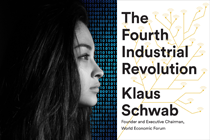CPAs weigh in on the future of Canadian accounting

CPA Canada leads proactive dialogue with stakeholders, members
TORONTO, February 13, 2019 – More than 1,200 chartered professional accountants are actively engaged in an important discussion about how they can help shape the future of the accounting profession.
CPA Canada’s strategic initiative Foresight: Reimagining the Profession, conducted through a digital online conversation and a series of in-person roundtables, asks members to weigh in on how the Canadian accounting profession should respond to significant issues impacting business and the accounting profession in Canada and around the world.
“What happens in the business world is going to drive the accounting profession because they serve that community,” says Tashia Batstone, senior vice president of external relations and business development at CPA Canada in Toronto.
Members are enthusiastically responding to express the direction they want to see the profession take to remain vibrant in a rapidly changing world.
For example, in response to a question about priorities for the profession, CPA respondents noted that professionals and academics need to work together to ensure members receive the right skills and competencies to be able to continue to remain relevant and add value to clients. This is especially important in the face of accelerating technological innovation, and the introduction of new phenomenon such as artificial intelligence.
It was also noted that CPAs need training beyond traditional accounting functions to address social, environmental, and governance reporting, and to deal with pressing issues such as climate change disclosure and sustainable development.
“The idea behind this exercise was to go through a series of conversations and dialogues to identify what we felt were critical certainties to determine ‘what are the things that we feel we know, that we’re pretty confident are going to happen into the future? And what are the things that we don’t know? What are the critical uncertainties about which we really need more time and information to decide how they are going to play out?’” Batstone explains.
Reimagining the Profession builds on a previous initiative that CPA Canada conducted in 2016-17 to help businesses plan for the future, resulting in the publication of Drivers of Change: Navigating the Future in 2017. Drivers of Change focussed on five driving themes — societal, technological, geopolitical, economic, and environmental opportunities and the impact developments in those areas could have on the profession.
“In 2018, we decided to more or less turn that publication on ourselves and evaluate where we thought the accounting profession was going to move in light of these various drivers of change,” says Batstone.
“We used those five drivers — societal, technological, geopolitical, economic, and environmental — from the 2017 report to help us identify those critical certainties and critical uncertainties to try to come to the plausible scenarios that we’re working with right now,” she explains.
Reimagining the Profession has also benefitted from CPA Canada led roundtables held in 2018 with about 40 participants to discuss issues of relevance to the business community. The roundtables included participation from chief financial officers, members from public practice, institutional investors, representatives from the public sector, regulators from the Canadian Public Accountability Board (CPAB) and the Ontario Securities Commission, as well as technology experts.
“We tried to pull together a multi-stakeholder approach to allow us to get some really interesting perspectives about where business was moving,” says Batstone.
Reimagining the Profession uses a four-quadrant matrix under the themes Slow and Steady, Phoenix Rising, Tech Titans, and My Way to further elaborate on two critical uncertainties that arose during the roundtable discussions.
One is the pace of change and a consideration of how willing individuals, societies, businesses, and institutions are to embrace technological and social change. That factor constitutes the horizontal, or X-axis of the matrix. The vertical, or Y-axis of the matrix, analyzes the geo-political world and the degree of willingness for participants to embrace cooperation, cohesion and social capital.
Five questions were posed under each of the themes:
• What about this scenario is plausible and why?
• What should be removed from the scenario and why?
• What is missing and should be added?
• What are the major challenges for accounting in this scenario?
• What are the major opportunities for accounting in this scenario?
Tomorrow: Four themes for the future of Canadian accounting. Jeff Buckstein, CPA, CGA, is a freelance business journalist based in Ottawa.





(0) Comments